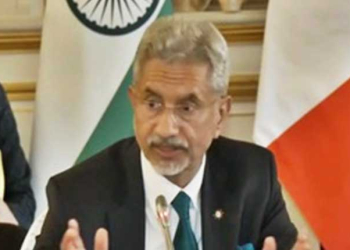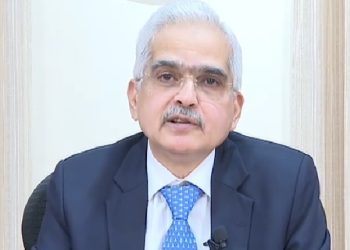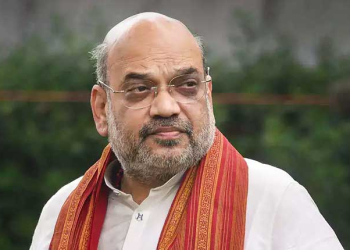New Delhi: The Centre told the Supreme Court that the Parliament enacted the GNCTD Act, 2021, as the 2018 constitution bench — which ruled that police, land and public order are the domain of the Centre, and the rest is under the Delhi government — highlighted certain shortcomings in the legislative scheme of Delhi for enabling co-operative governance.
In an affidavit, the Ministry of Home Affairs said: “The last several years have witnessed several instances of practical difficulties and disruptions in the functioning of the NCT of Delhi owing to the fact that the Lt Governor (LG) is often kept in the dark regarding the decisions pertaining to the NCT of Delhi, despite the fact that even under the unamended GNCTD Act and Transactions of Business Rules, the Government of NCT of Delhi was required to inform the LG regarding administration of the NCT of Delhi.”
The Supreme Court has decided to examine the constitutional validity of the amended GNCTD Act, 2021 and the Transaction of Business Rules, which allegedly give more powers to LG.
In the 2018 judgement, a five-judge Constitution bench had unanimously held that the LG is bound by the “aid and advice” of the elected government and both needed to work harmoniously with each other.
The Centre said the Act seeks to cut down the conflict by extending the likes of power which was already vested to legislative proposals in order to deal with the controversy at its roots rather than at the later stage requiring reconsideration of proposals, agendas, decisions or the orders already passed. The Centre said LG has not been vested with power of a pocket veto by virtue of the said amendment.
“The Amendment Act of 2021 in no manner attempts to override the substratum of the constitution’s bench decision or Article 239AA. The Amendment Act of 2021 merely seeks to bring clarity to and streamline the structure of governance in tune with the principles enshrined by the constitution bench,” said the affidavit.
The Centre said the Amendment Act of 2021 is not vague and should not be read down or declared unconstitutional. “The respondent appreciates that any provision of the GNCTD Act would be read in light of the principles of federalism, separation of powers as well as rule of law..,” it added.
The Centre said the Delhi government’s apprehensions in connection with the amended provisions of Section 21 of the GNCTD Act is “not correct”.
The Delhi government has assailed the validity of the amended provisions of the Act, claiming it suffers from ambiguity as to whether the LG would still be bound by the aid and advice of council of ministers in accordance with Article 239 AA (4) of the Constitution. “The Amendment Act of 2021 has made no substantive amendments which may have to effect of directly or indirectly attempting to override the constitutional provision of Article 239 AA (4)a..which provide that the council of minister with the chief minister as their head shall aide and advise the LGa,” said the Centre.
The Delhi government, in its plea, has sought quashing of the four amended sections of the Government of National Capital Territory of Delhi (GNCTD) Act and 13 Rules of the Transaction of Business of the GNCTD Rules, 1993 on various grounds, claiming they violate the doctrine of basic structure, separation of power as the LG has been bestowed with more authority. The Centre filed its response on the Delhi government’s plea.
“The Amendment Act has in effect disenfranchised the people of Delhi, and violated their political rights under the Constitution. For these reasons, it is respectfully submitted that the impugned Provisions contravene both Article 239AA of the Constitution, and the judgment of this Court in Govt of NCT of Delhi versus Union of India,” said the Delhi government plea.
(IANS)



















